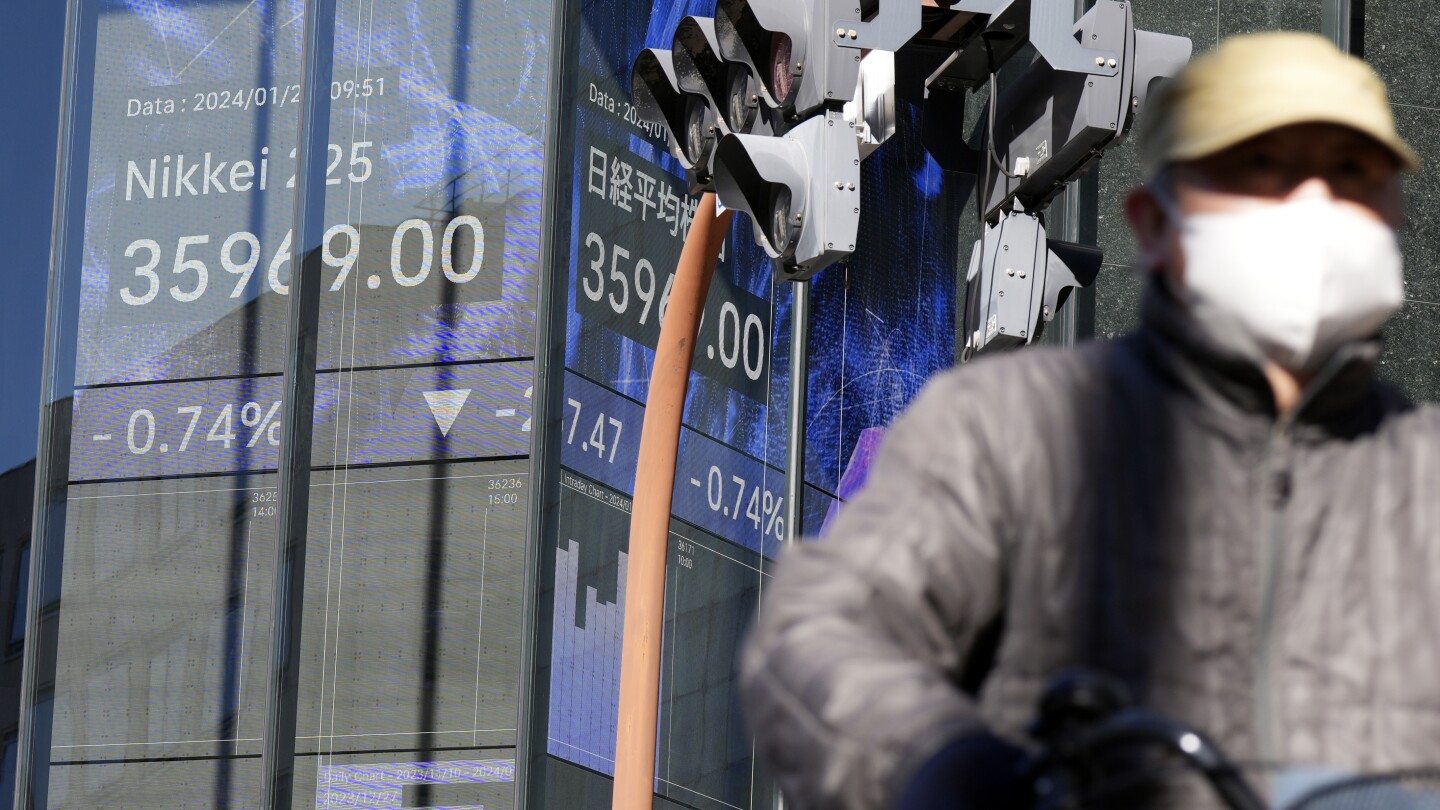TOKYO (AP) — Global shares were mixed on Friday following upbeat news on the U.S. economy, with Japan’s benchmark falling after the latest data showed inflation has been slowing faster than expected.
France’s CAC 40 jumped 1.5% to 7,572.65 in early trading, while Germany’s DAX shed 0.2% to 16,876.05. Britain’s FTSE 100 added 0.9% to 7,597.30. U.S. shares were set to drift lower with Dow futures down 0.3% at 38,096.00. S&P 500 futures fell 0.4% to 4,904.25.
Tokyo’s Nikkei 225 declined 1.3% to finish at 35,751.07 as a key measure of inflation slowed faster than expected in January, to 1.6% from 2.4% in December. Weaker price increases relieve pressure on the Bank of Japan to tighten its ultra-lax monetary policy, which has pumped massive amounts of cash into markets. The central bank is targeting 2% inflation.
“The BOJ will wait to gauge the underlying trend of the inflation path for the next few months. We expect inflation to rebound above 2% in February,” Robert Carnell, regional head of research Asia-Pacific at ING, said in a report.
Chinese markets ended a winning streak following a spate of moves by the government to shore up share prices and the property sector.
Hong Kong’s Hang Seng slipped 1.6% to 15,952.23, while the Shanghai Composite was little changed, up 0.1% at 2,910.22.
South Korea’s Kospi rose 0.3% to 2,478.56. Markets were closed in Australia for a national holiday.
Thursday on Wall Street, the S&P 500 added 0.4% to 4,894.16 and set a record for a fifth straight day. The Dow Jones Industrial Average climbed 0.6% and the Nasdaq composite gained 0.2%.
The U.S. economy grew at a 3.3% annual rate in the last three months of 2023, according to an initial estimate by the U.S. government. That was much stronger than the 1.8% growth economists expected, according to FactSet. Such a resilient economy should drive profits for companies, which are one of the main inputs that set stock prices.
The report also gave encouraging corroboration that inflation continued to moderate at the end of 2023. Hopes are high that inflation has cooled enough from its peak two summers ago for the Federal Reserve to start cutting interest rates this year. That in turn would ease the pressure on financial markets and boost investment prices.
In energy trading, benchmark U.S. crude declined 50 cents to $76.86 a barrel in electronic trading on the New York Mercantile Exchange. Brent crude, the international standard, fell 32 cents to $82.11 a barrel.
In currency trading, the U.S. dollar inched up to 147.80 Japanese yen from 147.64 yen. The euro cost $1.0839, inching down from $1.0848.

